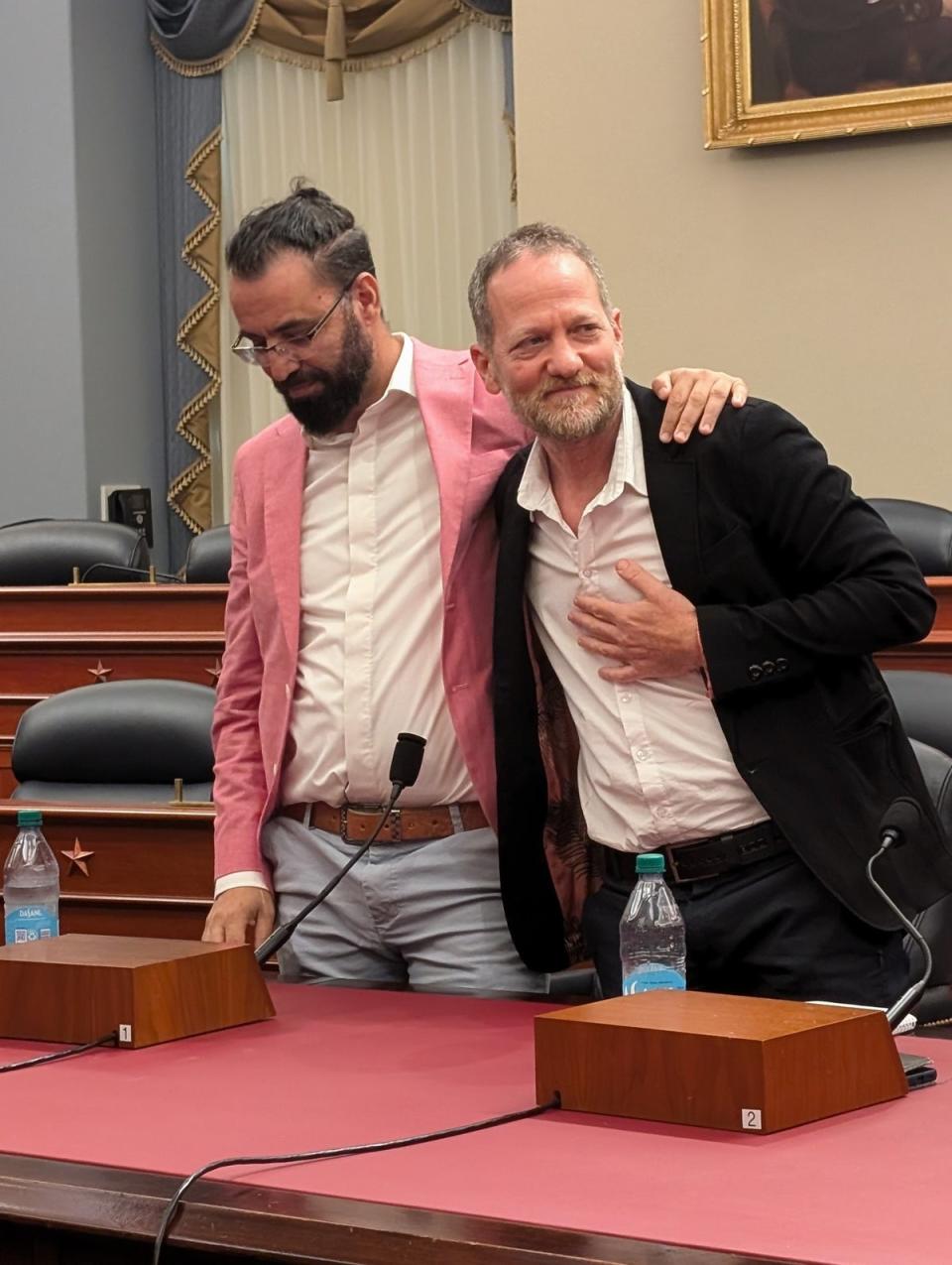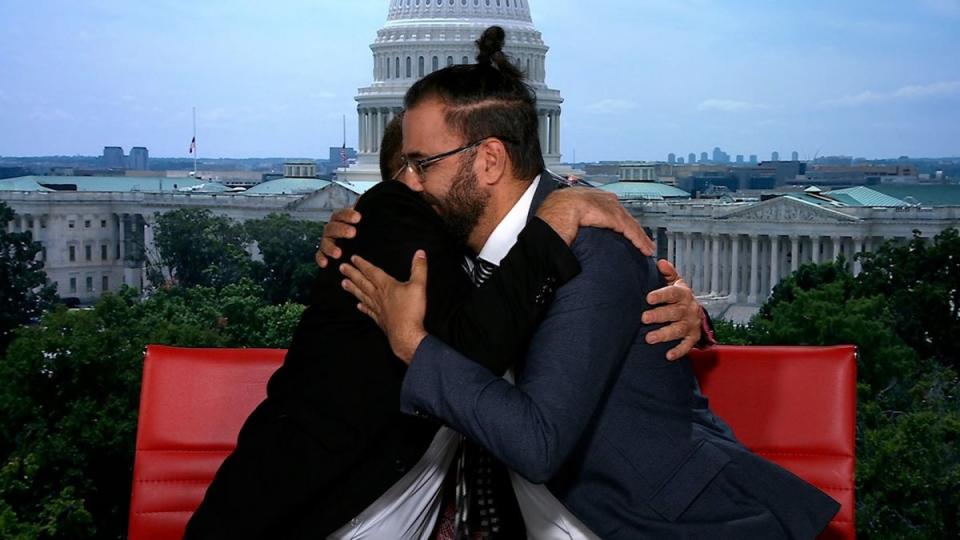


Right now, we could be on the precipice of a regional conflict, or even a world war—or we could be on the precipice of hope. We must choose which path we wish to take.
That is why we have joined forces to call for the international community to support our efforts to build peace out of the inferno of this conflict. The European Union is proof that peace is possible. The relationship between the U.S. and Japan is proof that it is possible. The peace between Catholics and Protestants in Northern Ireland is proof. Humanity has achieved peace many times before, and we must achieve peace now, between the river and the sea.
We don’t need the world’s thoughts, prayers, or crossed fingers for luck—it’s time for action to force an immediate halt to the war and to begin the process of conflict resolution between Israel and Palestine, with Lebanon included in the dialogue. We – Aziz and Maoz – met briefly several years ago in Jerusalem — just a simple hello and a handshake. But we reconnected on October 8, the day after Maoz’s parents were murdered, when Aziz reached out with his condolences. Maoz understood how difficult it must have been for a Palestinian to reach out to an Israeli at that moment. He replied immediately.

Aziz’s brother Tayseer had been arrested when he was just 18 years old and accused of throwing stones. The teenager, who was handed a prison sentence, was beaten so severely when he refused to confess to the charges that by the time he was released from the Israeli prison, he was nearly on his deathbed. He died shortly after, in the hospital, in 1991.
Aziz was devastated, bitter, and angry and focused on vengeance for years. That changed when he started taking Hebrew classes and met Israelis in the classroom. Despite the reality outside the world, in the classroom, they were equals. It was the first time he felt that an Israeli treated him as a human being. His experiences were met with recognition and empathy.
Maoz’s parents, Bilha and Yaakov, peacemakers themselves, lived just 300 metres from Gaza, in the shadow of the wall that separates Israel from the tiny enclave that blinds Israelis to the other side in Gaza. During Hamas’s bloody attack on southern Israel their house was burned to the ground with Maoz’s parents inside it — leaving behind a pain that is beyond words, a pain that the family still drowns in.
The world has invested in promoting war between Israel and Palestine. We want investment toward promoting peace
Aziz Abu Sarah and Maoz Inon
But Maoz believes his parents prepared his family for this moment. They raised their given children to work for a better future rather than waiting for someone else to make it happen. They encouraged their children to dream big and fulfil those dreams. Now, the family is dreaming of peace and reconciliation. Maoz’s younger brother, Maged, was the first in the family to share a universal message — that they were not seeking revenge for the deaths of their parents.
And so since that initial communication between Aziz and Maoz on October 8, we have come together with a call for people to reimagine, re-believe and re-activate. At the same time, we aim to amplify voices like ours — peacemakers — so that people know we exist, both locally and internationally.
The world has invested in promoting war between Israel and Palestine, and we want to shift that investment toward promoting peace.
One reason we believe past negotiations have failed is the absence of peacemakers like us at the table. You cannot put politicians, many of whom come from military backgrounds and have little knowledge of negotiations and peace-building, into a room and expect them to figure it out on their own.
A group of peacemakers like us can bridge the gap because we have relationships, knowledge, and understanding of each other’s cultures and histories. We can hold our politicians accountable and guide them.


We also believe the focus on “two-state versus one-state” solutions is misguided. What truly matters are the values that would lead to any solution.
Too much focus has been on drawing the lines. There are out-of-the-box solutions gaining traction among Israelis and Palestinians, such as a confederal system between Israel and Palestine.
But even before that right now, the focus should be on the values that any agreement must include — equality, dignity, mutual recognition, and empathy. We need an UN Security Council declaration that the occupation must end and all settlement must be withdrawn. If we keep waiting, the consequence will be beyond our imagination like we could not imagine October 7th, a day before.
I’m afraid we are going to reach a million casualties.
Without these values, it won’t matter how many lines you draw — it will eventually bring us back to where we are today.
We meet many people who say they want peace but do not know how to start. The strongest part of our message is that action brings change.